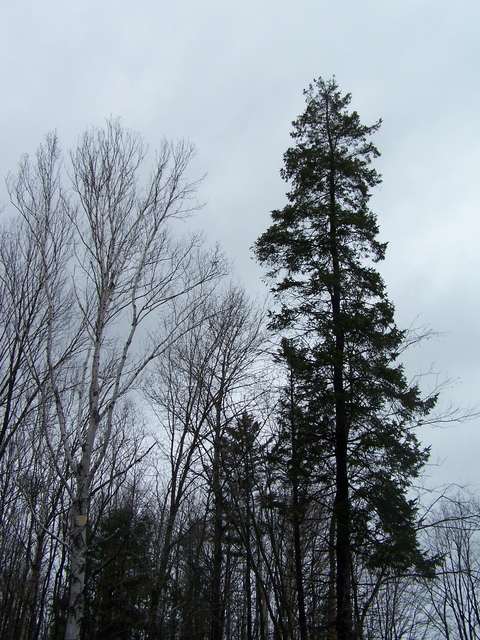|
FIR TREE >> The Knowldege of Orderly Subordination, as in Heaven
 The firs and spruces constituting the family Abies differ from the pines in shape, and in the quality of the wood. They are more sharply conical than pines, having less lateral extension, and more prominent leading shoots. The stratification is very regular from the top to the bottom of the trees, though when they grow together in the forests, they lose their lower branches. Their wood is resinous, but much less so than pine. It is harder, and not so easily worked; but, on account of the straightness of its stems, it is especially valuable for frames of buildings where its size is sufficient; it is also sawed into boards for outside covering and flooring. It grows with the pine, but also in colder climates, extending up the mountainsides, almost, or quite, to the limit of the growth of trees. The firs and spruces constituting the family Abies differ from the pines in shape, and in the quality of the wood. They are more sharply conical than pines, having less lateral extension, and more prominent leading shoots. The stratification is very regular from the top to the bottom of the trees, though when they grow together in the forests, they lose their lower branches. Their wood is resinous, but much less so than pine. It is harder, and not so easily worked; but, on account of the straightness of its stems, it is especially valuable for frames of buildings where its size is sufficient; it is also sawed into boards for outside covering and flooring. It grows with the pine, but also in colder climates, extending up the mountainsides, almost, or quite, to the limit of the growth of trees.
The regular pyramidal form of these trees, with their prominent leading shoot, and marked stratification throughout, suggests the principle of orderly subordination in the mind, in the family, in Church and State, and in the heavens, as their correlative.
In this view, a knowledge of what is proper to each plane of the mind, or of life, and its relation to others, constitutes, successively, the several strata of branches; and the leading shoot is the effort to attain the knowledge of the leading principle, the ruling love, or the head. Some intermediate twigs or small branches usually grow between the layers, like common ground between different planes of life. These are rare and very small between the nodes of the pines; for the spirit of independence prefers to keep its place even more strictly than rules of order require.
The trees naturally grow together, and they work well together in building also; for the principles of order very properly constitute the frame, the coarser boarding, and the common floor, which give general shape to the family life, while the details are finished with knowledge of individual rights and privileges.
That the principle of subordination survives in states too intensely cold and discouraging for the spirit of independence, is evident from the history of despotisms.
Author: JOHN WORCESTER 1875
|